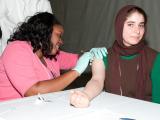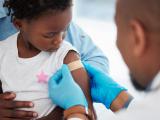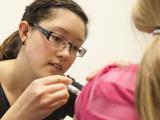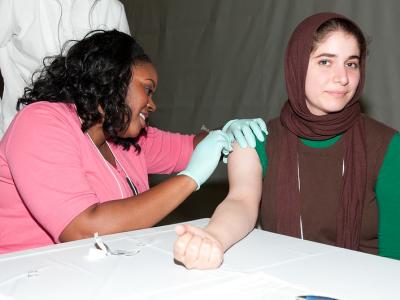Editor's Note: CIDRAP's Public Health Practices online database showcases peer-reviewed practices, including useful tools to help others with their planning. This article is one of a series exploring the development of these practices. We hope that describing the process and context of these practices enhances pandemic planning.
May 5, 2008 (CIDRAP News) – Prodding citizens to prepare for pandemics and other disasters is a constant challenge, but public health officials in North Carolina have a creative approach that didn't require thinking outside the box, but rather inside of it—in the form of touch-screen computer kiosks.
In North Carolina, natural disaster isn't just an abstract concept to the state's residents, said Bill Furney, communication coordinator of North Carolina's office of Public Health Preparedness and Response (PHPR), which resides in the state's division of public health and is funded by the US Centers for Disease Control and Prevention.
"North Carolina is an equal-opportunity state for disasters. We have everything—tornados, landslides, flooding, and hurricanes," he said.
PHPR developed the "Be Ready!" disaster preparedness kiosks in 2006 as a way to help the state's seven Public Health Regional Surveillance Teams spread the message about emergency preparedness, said Furney. The seven surveillance teams were created after the Sept 11 terrorist attacks to respond to terrorism activities, infectious disease outbreaks, and natural disasters.
Why kiosks?
He said PHPR needed a way to stir more interest in emergency preparedness brochures. "We could have printed a bazillion materials, but what is it that makes people want to read?" he said, adding that offering a kiosk component could grab the public's attention and lure them to look at the collateral materials.
According to PHPR, kiosks are a useful educational tool because they:
- Provide an interactive experience, which can help users retain the information
- Allow users to select information they want at their own pace
- Serve a range of languages and reading levels
- Encourage action with a clear, consistent message
- Bring critical information to citizens
With an initial budget of $50,000, PHPR selected SmartVista, a technology company based in Morrisville, NC, to provide the hardware, which consists of portable, touch-screen computers, then worked with the company on the content, which includes some materials from federal agencies such as the Department of Homeland Security and a series of public service announcements on disaster preparedness that had just been released by the Ad Council, Furney said.
Pandemic influenza is covered, along with several natural and manmade disasters. The presentation is offered in both English and Spanish.
High engagement
PHPR has eight kiosks, one for the main office and one for each of the seven regional surveillance teams. The kiosks are available to county and city public health departments, which use them at health fairs, county fairs, conferences, clinics, and other events. The devices are especially popular during the fall county fair season and during spring observances for public health month and week.
"This gives us the ability to provide a service to counties, which wouldn't necessarily be able to afford or coordinate this on their own," Furney said.
Furney said it's rewarding watching people use the kiosks. "The kids love it, and their parents will follow up on what they're doing," he said. "It really is a 'gee whiz' kind of technology that people will gravitate toward, but it's also functional."
The kiosk devices allow public health officials the opportunity to cost-effectively offer interactive presentations on other topics, and Furney said that PHPR has recently installed a pandemic-specific module on the machines.
So far, the biggest obstacle to using the kiosks in the field is keeping all of the devices maintained and repaired, Furney said.
North Carolina's PHPR was recognized for its "Be Ready!" kiosks when the National Public Health Coalition awarded the group its 2006 silver excellence award in the new media (outsourced) category.
See also:
View tools and reviewers' comments from the "Be Ready! Kiosks" practice


















